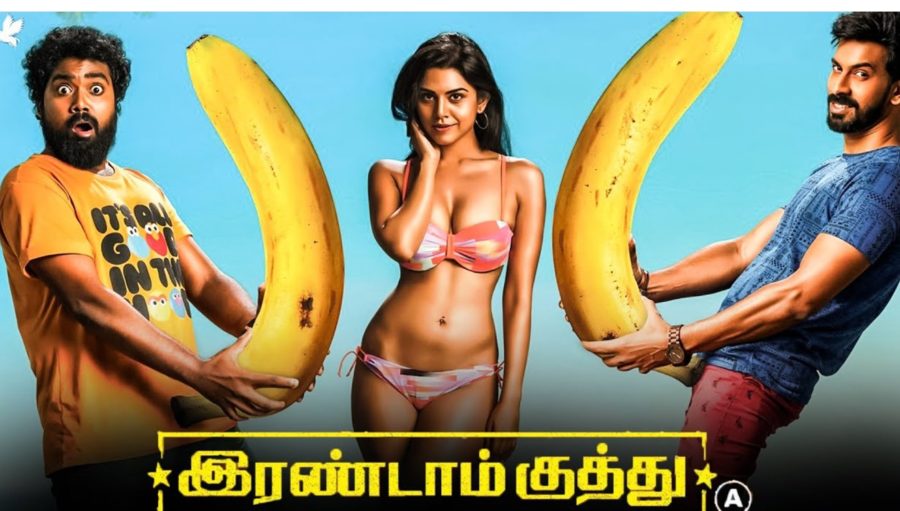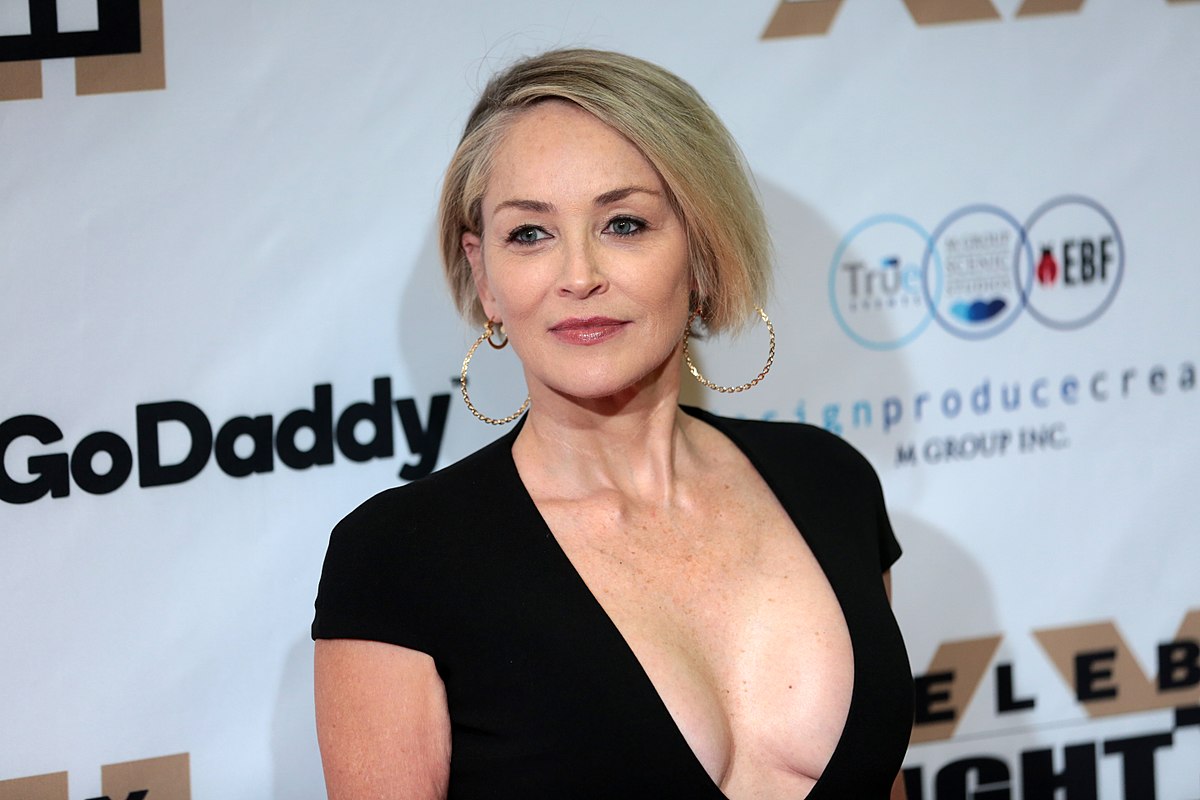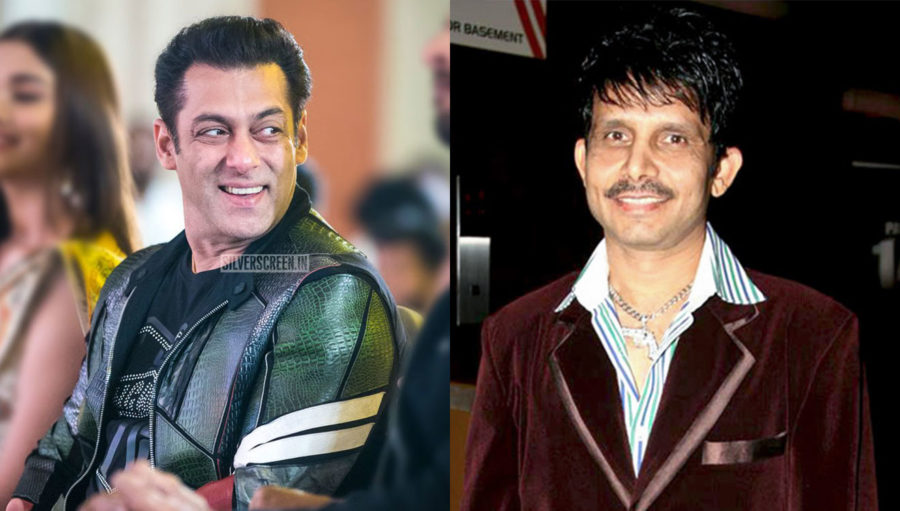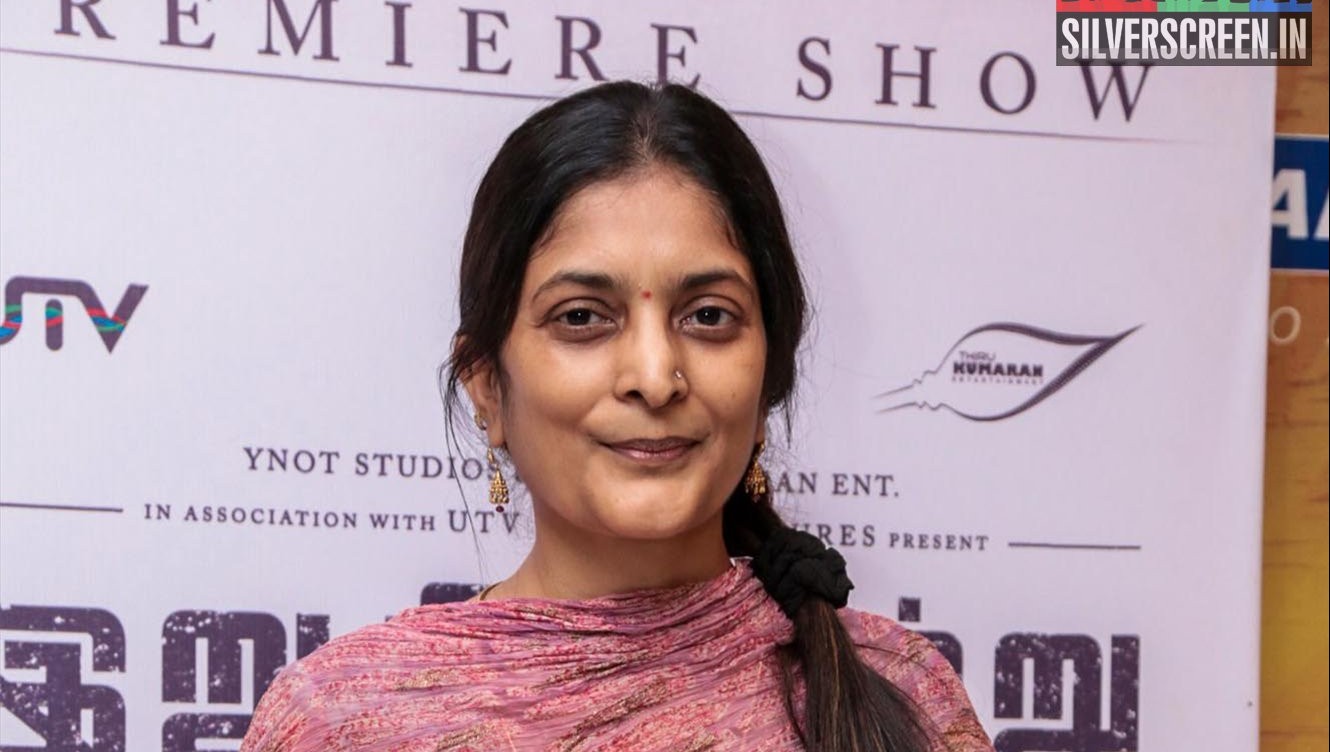When the upcoming Tamil film Irandam Kuththu’s teaser was released, it invited a barrage of backlash from both the audience and the film industry.
Veteran director Bharathiraja even went on to pen a letter criticising the contents of the teaser.
“When the teaser released, I was expecting some amount of criticism but this level of controversy was unexpected,” says the movie’s director, Santhosh P Jayakumar.
Adult comedies are not new to polarised opinions of audiences and critics.
“As they say, one man’s sexuality is another man’s vulgarity. There is no objective way to see these things,” says director CS Amudhan.
As a genre, these films have become infamous for their problematic depiction of women and the LGBTQ+ community. Despite their potential to open up the conversation of sex, filmmakers are sceptical about whether that is the intention of the creators.
Untapped market
According to producers, these films have been highly profitable ventures. The 2015 Tamil film Trisha Illana Nayanthara featured lyrics such as ‘Hey naan unakku peiyu padam nee enakku bittu padam di’ (for you, I’m a ghost movie but to me you’re a porn film) and scenes where the male protagonist presses packets of milk placed on his chest every time a girl riding a bike encounters a bump.
Speaking on the success of this film, producer CJ Jayakumar says: “We got an excellent response. The adult comedy elements come out only in the jokes and dialogues and not through visuals.”
Films about sex and a person’s sexuality are not the bone of contention for many of these filmmakers. There is a niche audience that enjoys watching these films.
“There is an audience for these films and they have to be satisfied. But there is a level and limit for that. It has to be controlled,” he adds.

The Tamil film industry is no stranger to adult humour. Movies like Manmadha Leelai achieved it in the late 70s. It could be in separate comedy tracks in films or through dialogues and innuendos seen in films like Chandramukhi and Comali.
A full-blown film featuring graphic scenes and references has been a trend only in recent years with movies like Kya Kool Hai Hum, Grand Masti, Evanukku Engeyo Matcham Irukku, and Hara Hara Mahadevaki .
Differences
Considering the lengthy portrayal and explicit content, filmmakers view this as a rather discomforting portrayal of sexualising women.
“At a time when we are battling for gender sensitisation and there is a history of crimes against women, these trends in movies become deeply disturbing. It showcases the male gaze in an amplified and exaggerated form, ” says Uma Vangal, a film professor and documentary filmmaker.
With the view that these films help reinforce deep-rooted prejudices against women’s sexuality, many filmmakers do not necessarily see these films to be championing normalising healthy expression of sexuality. They add that these films are rooted in homophobia as well.
“These adult comedies usually do not normalise sex or act as a means to impart sex education. Most of the time, these films are normalising hypersexuality of women and slut-shaming,” says writer Sneha Belcin.
In a society where women are objectified, filmmakers feel that such films legitimise it when they are not done in a refined manner.
“They are making these films as a selling point. Sexualisation can also be an art but in these films, women’s sexuality has become a commodity,” says independent filmmaker Shikha Kumari A.
The problematic portrayal of the LGBTQ+ community often goes unnoticed in generic Indian comedies, feel filmmakers. Even films that are propagated and marketed as being pro-LGBTQ+ are not free from bias.
“Four months ago, we saw a sneak peek of an adult film doing rounds on social media. It was being praised, but the clip was highly offensive to the LGBTQI community. When it comes to people’s sexuality this is how uninformed we as a society are,” says Sneha.
Viewing these films through the lens of Indian culture, such comedies are deemed uncomfortable and scandalous because a majority of viewers watch films at home with their families. The argument of such films going against Indian culture comes from a desire to suppress women’s sexuality.
Conversations on sex
As uncomfortable as it may seem, these films have the potential to bring the topic of sex to the table. Santhosh P Jayakumar believes that woman’s sexual desires can be depicted through such films. “People seem to think that our culture is where men can have sexual desires but women cannot,” he says.
Recommended
However, a simple portrayal of adult content cannot achieve that. “An adult comedy film being made in a refined way is absolutely possible. Instead of it being in-your-face, a sophisticated version can be done but I have not seen anything like that yet,” says CS Amudhan.
Adult comedy films do have the ability to educate the audience and break taboos surrounding sex.
“A movie can contribute to normalising the topic of sex if that is the intention of the film. These adult comedies that we see, their intention is not to have an informed conversation but to just bring out locker room fantasies on screen,” says Vangal.
The type of adult films that make it to the screens today rarely have a nuanced understanding of sex and its aspects. The creator’s intention does not have to necessarily be about educating the audience. It is mostly about having fun and bringing forth an enjoyable experience for their viewers.
“These creators and writers just want a few laughs and claps. Rather, their motive should be to understand that such scenes and lines will have on the crowd,” says Sneha.

A considerable amount of television shows and films have seemingly mastered the art of creating sexual content without objectifying women. Works like Sex Education and As Good As It Gets have managed to open up the conversation about sex.
“Sex Education on Netflix or the film Kamasutra portrayed sex differently. They portrayed the science and emotions of it,” says Shikha Kumari.
Indian adult comedies have seen a surge in popularity in recent times. With both Hindi films and regional cinema churning out such films, they have already found a space in mainstream cinema.
However, when depicting women, these films paint them in caricature characters, as vamps or sirens. It is rarely ever about a woman expressing her sexual desires or exploring her sexuality. In such a situation, women filmmakers feel that it is imperative to make responsible cinema. It is not impossible to make films that have adult humour without relying on crude jokes and objectification.
“If you bring both the gender perspectives and dynamics, you can achieve that. There is an aesthetic way to show sex,” adds Uma Vangal.



